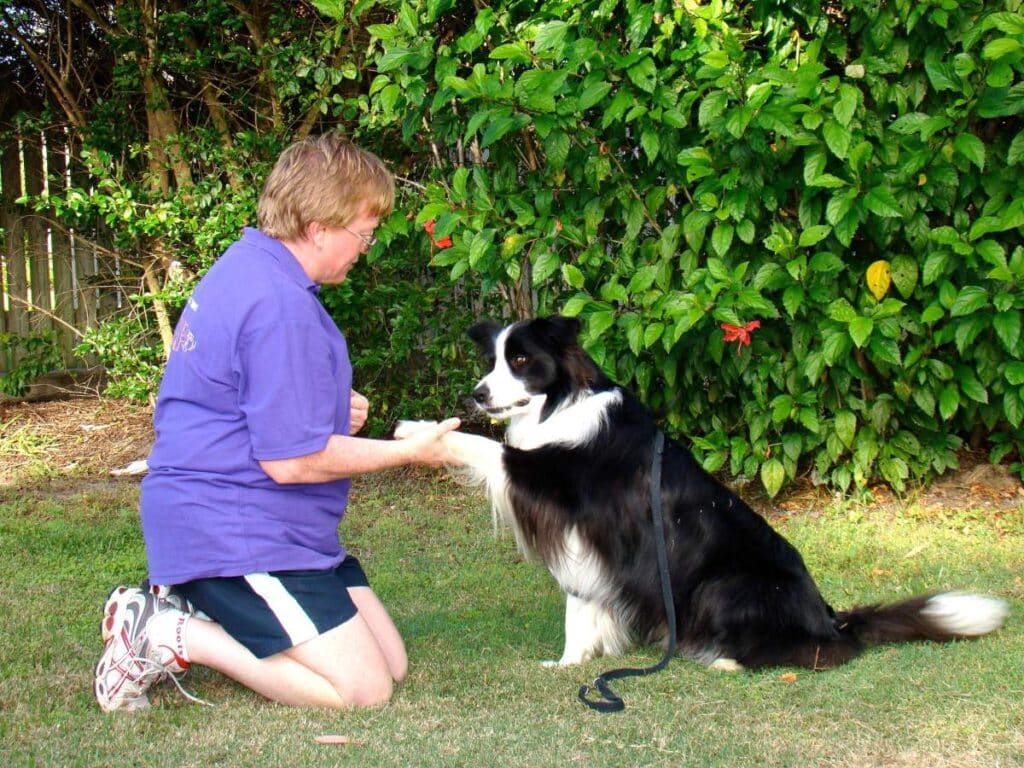
Bundaberg dog trainer Wendy Newton is unleashing new research to create safer, more effective practices for animals in residential aged care facilities.
A love for animals and background as a registered nurse led Dr Newton to focus on animal-assisted therapy for her Doctor of Philosophy (PhD) thesis topic at CQUniversity, addressing unregulated policies in the aged-care sector surrounding animals in these environments.
“There’s currently a lack of oversight, from facility policies to Federal Legislation in the outdated Aged Care Act,” Dr Newton explained.
“Unregulated animals, such as those brought in by friends, family, or ad hoc volunteers, pose risks to residents, the animals, and the practice itself if something goes wrong.”
While animals and working with them have been a passion of Dr Newton since childhood, stepping into an academic space presented a new set of challenges for the researcher.
“Years of competing with and training dogs made me somewhat aware of the animal welfare issues when they started to show up,” she said
“However, it was personally confronting to find that there were more potential animal welfare issues than I had expected, and I found it really challenging to publish a paper on animal welfare issues.”
Dr Newton said the findings revealed potential risks that even experienced animal handlers may overlook.
“People want animals in aged care, but the balance between residents’ enjoyment and the animals’ welfare isn’t always clear.
“This creates tension between what people want and what’s good and safe for animals.
“I remember hearing about a lady with severe dementia who was usually aggressive with staff.
“But when she was with kittens, she quietly rearranged them on her lap—a moment of gentleness and connection.
“However, the kittens’ safety was a concern.
“What if she reacted badly or accidentally hurt them?
“These are the dilemmas we face in this field.”
Dr Newton envisions her research as a stepping stone toward developing national standards and guidelines with plans to expand her research into a larger project to develop comprehensive policies tailored to the diverse needs of residential aged care facilities.
“We currently don’t have any legislative requirements for residential aged care facilities to have animal policies,” she said.
“The new Aged Care Act (Bill) mentions pets and the need for people to keep in contact with their pets as an important relationship and connection to nature.
“With this in place, there is an even greater need for guidelines for facilities and policy development.
“The goal is to provide clear guidance for managers and staff, ensuring that both people and animals are safe.
“This is a substantial project requiring a well-crafted team of experts and several years of work.
“It’s not one-size-fits-all, so we need to consider factors like facility size, species, and regional versus metropolitan contexts.”
While Dr Newton is set to officially graduate at the upcoming CQUniversity Bundaberg ceremony on 10 December, the passionate researcher said she is eager to continue working to improve the lives of both residents and animals in aged care.
“I’ve had the opportunity to collaborate with incredible individuals who constantly challenged me to think harder and grow,” Dr Newton said.
“This journey has been an incredible privilege, and I’m excited about the impact this research can have.”
Other news: Wally the gentle giant looking for a home




